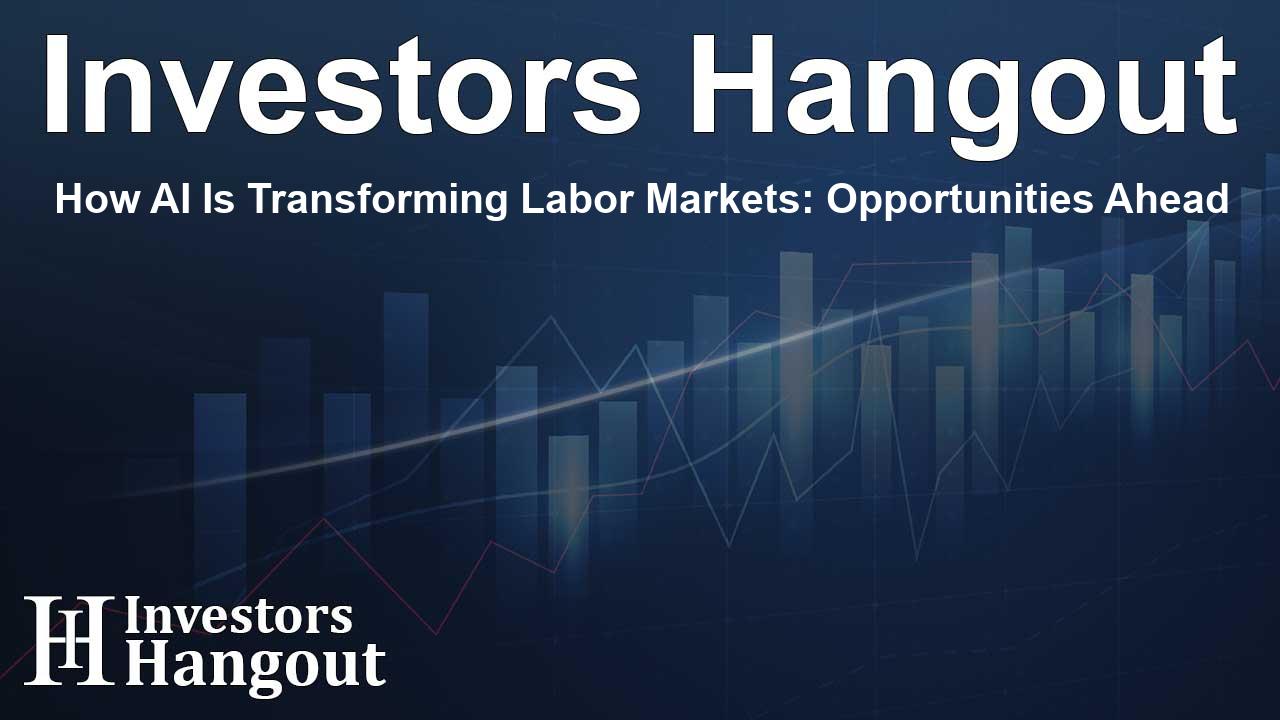How AI Is Transforming Labor Markets: Opportunities Ahead

AI's Influence on Global Labor Markets
In today's rapidly changing world, artificial intelligence (AI) is having a profound impact on labor markets across the globe. A recent report from Whiteshield, in collaboration with Google Cloud, reveals that while some nations are successfully leveraging AI, many others face the risk of falling behind. The Global Labour Resilience Index (GLRI) analyzes how countries adapt their labor markets to societal shifts, showcasing both the potential and challenges posed by this technological evolution.
Leading the Charge: US and Singapore
The report highlights that the United States and Singapore are at the forefront of AI adoption, thanks in part to their strong entrepreneurial ecosystems and adaptable labor markets. These countries stand out not only for their innovation but also for their ability to integrate AI into their economic strategies. Their success story emphasizes the importance of flexibility and strategic investments in AI for sustainable economic growth.
Why Resilient Labor Markets Matter
Resilient labor markets are crucial as they enable societies to respond effectively to external shocks. The GLRI underscores that a combined approach of traditional labor policies with innovative AI strategies can create a more sustainable labor force. Countries such as Sweden, while not leading the rankings, show the value placed on education and research investments. The findings underscore that countries leading in AI implementation can enhance job creation and economic stability.
The Opportunities Brought by AI
Artificial intelligence presents a unique chance to enhance workforce efficiency and create new job opportunities. For instance, roles such as AI data architects and AI ethics officers are on the rise. AI can boost the quality of work and increase overall productivity. However, it's crucial to confront the challenges that accompany these advancements, including job displacement and wage inequality. Policymakers must construct frameworks that ensure AI benefits are distributed equitably among all demographic groups.
Major Findings from the GLRI
The GLRI report indicates that the US is a leader in AI investments, accounting for approximately 60% of global AI expenditures over the past decade. This investment translates to a rich landscape of innovation with a plethora of AI startups entering the market. However, one pressing challenge that has emerged is rising income inequality. Governments will need to create robust policies to mitigate these risks, ensuring that technological advances do not benefit only a select few.
Strategies for Resilience
The report outlines three key approaches to building resilient labor markets. The first is the Traditional Pathway, which focuses on enhancing social safety nets and solid economic policies, exemplified by nations like Sweden and Norway. The second, the AI and Innovation-Driven Pathway, showcases the United States' focus on a robust, entrepreneurial environment fostering R&D. Finally, the Blended Pathway, represented by Singapore, merges traditional approaches with innovative investments.
Regional Insights: A Global Perspective
Across Europe, there is a clear trend of resilient labor markets, with many nations excelling in adaptability and AI integration. Countries such as Germany showcase strong AI capabilities, whereas regions like Sub-Saharan Africa struggle to improve their economic stability.
The Future of Labor Markets: A Call to Action
As AI continues to transform industries, the GLRI emphasizes the necessity for governments, businesses, and individuals to adopt forward-looking policies. The urgency for labor markets to shift from reactive measures towards proactive strategies is paramount. By fostering an environment conducive to innovation and investing in education and digital skills, nations can harness the potential of AI to drive inclusive economic growth.
Frequently Asked Questions
What is the Global Labour Resilience Index (GLRI)?
The GLRI is a measure developed to evaluate how countries adapt their labor markets to various external shocks, including technological changes like AI.
Which countries are leading in AI adoption?
The United States and Singapore are widely recognized as leaders in AI adoption, thanks to their innovative approaches and flexible labor policies.
What challenges does AI pose to labor markets?
AI can lead to job displacement and increased wage inequality, posing significant challenges that require proactive policy responses.
What strategies can be used to ensure resilience in labor markets?
A combination of traditional labor policies and innovative AI-driven approaches can create more resilient labor markets capable of thriving amidst change.
How can policymakers navigate the impact of AI?
Policymakers should focus on personalized, citizen-centric policies and invest in digital literacy and infrastructure to leverage AI's potential effectively.
About Investors Hangout
Investors Hangout is a leading online stock forum for financial discussion and learning, offering a wide range of free tools and resources. It draws in traders of all levels, who exchange market knowledge, investigate trading tactics, and keep an eye on industry developments in real time. Featuring financial articles, stock message boards, quotes, charts, company profiles, and live news updates. Through cooperative learning and a wealth of informational resources, it helps users from novices creating their first portfolios to experts honing their techniques. Join Investors Hangout today: https://investorshangout.com/
Disclaimer: The content of this article is solely for general informational purposes only; it does not represent legal, financial, or investment advice. Investors Hangout does not offer financial advice; the author is not a licensed financial advisor. Consult a qualified advisor before making any financial or investment decisions based on this article. The author's interpretation of publicly available data presented here; as a result, they should not be taken as advice to purchase, sell, or hold any securities mentioned or any other investments. If any of the material offered here is inaccurate, please contact us for corrections.